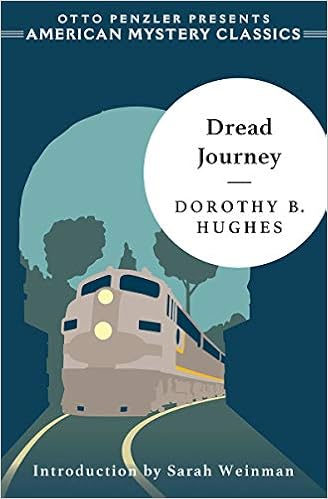Gwynne Garfinkle
The Pleasures of 2020, in Spite of Everything
During this difficult year, I've been eager to immerse myself in other times and other lives through reading (though I've tried to steer clear of apocalyptic/dystopian fiction). The last in-person book event I attended was way back at the beginning of March at my beloved Skylight Books. There Mallory O'Meara discussed her book, The Lady from the Black Lagoon: Hollywood Monsters and the Lost Legacy of Milicent Patrick, which excavates the story of the uncredited designer of the iconic Creature From the Black Lagoon and her struggles with Hollywood's rampant sexism. The book contains many surprising details, such as the name a Universal Pictures publicity manager suggested for the Creature: "How about a combination of man and halibut called the Xenobut?" Reading this book got me hooked on Reading Glasses, the uproariously informative podcast about book culture and literary life cohosted by O'Meara and Brea Grant. O'Meara's tastes tend toward horror and literary fiction, Grant's toward science fiction. Listening to the podcast has become a comforting ritual for me, one that has added many books to my TBR list.

Some of the books I enjoyed most this year were thrillers, such as the train-travel suspense novel Dread Journey (1945) by Dorothy B. Hughes (of In a Lonely Place fame). I've yet to find a Hughes novel that disappoints. Patricia Highsmith's This Sweet Sickness (1960) tells the grim story of a man's delusional romantic obsession. The Likeness (2008) by Tana French is an absorbing mystery (sometimes compared to Donna Tartt's The Secret History) dealing with the murder of a young woman who was part of an insular group of Irish university students. Part Gothic thriller, part Lovecraftian horror, Mexican Gothic (2020) by Silvia Moreno-Garcia is a page-turner set in 1950s Mexico.
Shirley Jackson is one of my favorite writers, and this year I read Dark Tales, a sampling of her short fiction. I was familiar with some of the stories (such as "The Honeymoon of Mrs. Smith," a deadpan Bluebeard tale), while others (like "The Possibility of Evil," about the comeuppance of a writer of poison pen letters) were new, disquieting treats.
A book that knocked my socks off this year was Maria Dahvana Headley's Beowulf: A New Translation. Like Emily Wilson's translation of The Odyssey, this version of Beowulf imbues a classic work with vibrant immediacy. As Headley writes in her introduction: "Beowulf is a living text in a dead language, the kind of thing meant to be shouted over a crowd of drunk celebrants." I was transfixed by the poem's raucous music.
Dodie Bellamy Is on Our Mind, edited by Jeanne Gerrity and Anthony Huberman, is a collection of essays about avant-garde writer Bellamy, whose multi-genre work focuses on sexuality, queerness, feminism, class, and experimental narrative. The book concludes with a moving, wide-ranging dialogue between Bellamy and her late husband Kevin Killian.
I'm not a true crime buff, so I was surprised by how engaging I found the HBO documentary series I'll Be Gone in the Dark, based on the posthumously published book by Michelle McNamara about her obsessive investigation of the Golden State Killer. What drew me in was the series' focus on McNamara's life and writing career. The show led me to read her book. Beautifully written, it treats the Golden State Killer's victims with great empathy and understanding. "Letter to an Old Man," which concludes the book, brilliantly presages the killer's capture (which would only occur after McNamara's untimely death).
I'm still working my way through Heather Clark's Red Comet: The Short Life and Blazing Art of Sylvia Plath, but it's already my favorite Plath biography (and I've read several). The book benefits from letters, interviews, and other archival items only recently made available. Clark examines material earlier Plath biographies do not, such as the short fiction Plath wrote in high school; these stories are more politically radical, and more thematically similar to The Bell Jar, than the women's magazine fiction she published in college. The book is full of fascinating tidbits for Plath geeks like me, but even for those unfamiliar with her story, it's a fine portrait of an ambitious young writer that doesn't define her by her suicide. As Clark writes in the introduction: "This book will trace Plath's literary and intellectual development rather than her undoing."

In the midst of the pandemic, I found myself craving Octavia E. Butler's iron narrative grip, and I picked up Fledging. Butler's novel offers a unique take on vampire mythology, and also a disturbing one: its vampire protagonist looks like a child. Butler's vast archives (over three hundred boxes!) are housed at the Huntington Library in San Marino, near Butler's Pasadena home, and Lynell George's new book A Handful of Earth, A Handful of Sky: The World of Octavia E. Butler uses their riches to provide insight into Butler's creative process and her very survival. The book includes photos of Butler's library card, notebooks, and other ephemera that seem to give off a magical charge.
Gwynne Garfinkle lives in Los Angeles. Her work has appeared in such publications as Uncanny, Strange Horizons, GigaNotoSaurus, Apex, Dreams and Nightmares, Not One of Us, and The Cascadia Subduction Zone. Her collection of short fiction and poetry, People Change, is available from Aqueduct Press. Her first novel, Can't Find My Way Home, is forthcoming from Aqueduct.


No comments:
Post a Comment